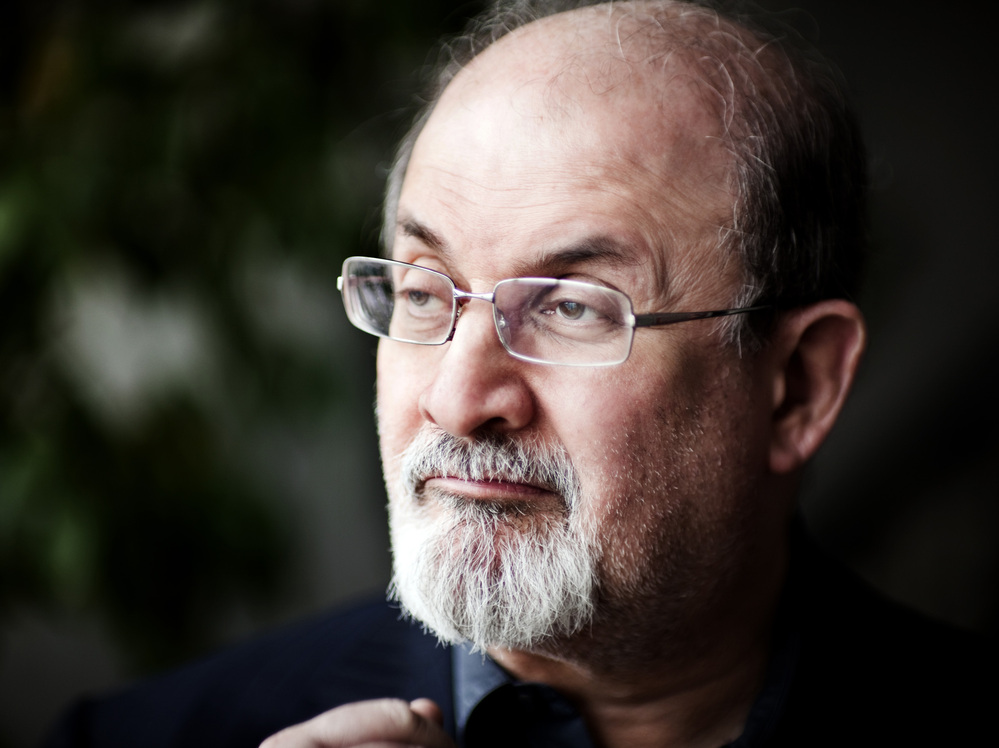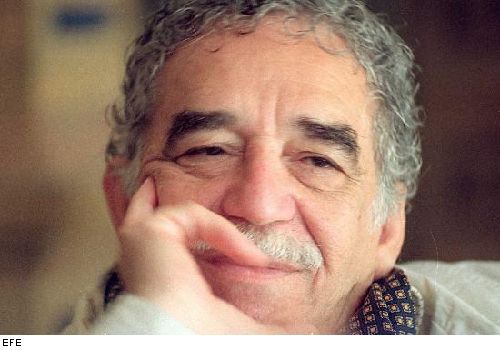These are inclined to change order depending on the day, so there's no ranking system. It might not even be these same writers all the time. But that's who it is today. Pretty easy list to make, I just have to look at the bookshelf. Novelists only since I don't read enough non-fiction or poetry these days, unfortunately.
11. Phillip Roth - American
Reference Novels: Portnoy's Complaint; Nemesis; American Pastoral
Why: Been good since the sixties and still at it (Nemesis was released in 2010), I loved Portnoy's Complaint (yes, I'm a perv) and how it sounded like a long novel of standup comedy. First time I'd ever seen that done. He's got character-driven prose down too, American Pastoral is as cerebral a novel as they come.
10. Salman Rushdie - British/Indian
Reference Novels: Midnight's Children; Shalimar the Clown; Haroun and the Sea of Stories
Why: Sadly most famous for the fatwa due to The Satanic Verses which isn't one of his best works. The epic novel spanning generations and locales is his specialty and nowhere is it more magnificent than Midnight's Children; a novel which has influenced every Indian writer in English since 1982 (no matter what they say).
9. Gabriel Garcia Marquez - Colombian
Reference Novels: One Hundred Years of Solitude; Love in the Time of Cholera; Strange Pilgrims
Why: Strange Pilgrims is on my desk right now (I use it for referencing both during editing and crafting). I've read Love in the Time of Cholera more than fifty times and despite how damaging that must be for my psyche I'll probably read it another five times next year too. One Hundred Years of Solitude is the most influential novel to every Latin American writer post-1968 and for a lot of Caribbean writers. Maybe for the whole world.
8. V.S. Naipaul - Trinidadian/British/ (world?)
Reference Novels: A House for Mr. Biswas; A Bend in the River; An Area of Darkness
Why: Fiction or Travel writing, he's undoubtedly the master of both. No one has a command of English like Naipaul. Either no one sees what he sees or no one is willing to commit it to paper. Love him or hate him (in the Caribbean it's usually hate) he is among the elite of writers today, probably ever.
7. Kazuo Ishiguro - British/ Japanese
Reference Novels: The Remains of the Day; Never Let Me Go; The Unconsoled
Why: The Remains of the Day was one of the first novels I'd read in a long time and immediately re-read it once I finished. Never Let Me Go was the most clever novel I'd read in a long time and gave me a taste for science fiction (that taste was fleeting, unfortunately). I like The Unconsoled most because it reminds me of works by one of my favorite writers of all time, Kafka. It's has no clear start and no clear resolution, with issues of the past haunting but never defined. So, it's just like real life.
6. Milan Kundera - Czech/ French
Reference Novels: The Unbearable Lightness of Being; The Book of Laughter and Forgetting; The Art of The Novel
Why: Mostly essays these days but Kundera's novels are like no one else's. Regularly breaking the fourth wall to address the reader directly, multiple lead characters and always that setting that defines everything but never becomes intrusive. It's a mix that's very accessible without ever being anything less than excellent
11. Phillip Roth - American
Reference Novels: Portnoy's Complaint; Nemesis; American Pastoral
Why: Been good since the sixties and still at it (Nemesis was released in 2010), I loved Portnoy's Complaint (yes, I'm a perv) and how it sounded like a long novel of standup comedy. First time I'd ever seen that done. He's got character-driven prose down too, American Pastoral is as cerebral a novel as they come.
10. Salman Rushdie - British/Indian
Reference Novels: Midnight's Children; Shalimar the Clown; Haroun and the Sea of Stories
Why: Sadly most famous for the fatwa due to The Satanic Verses which isn't one of his best works. The epic novel spanning generations and locales is his specialty and nowhere is it more magnificent than Midnight's Children; a novel which has influenced every Indian writer in English since 1982 (no matter what they say).
9. Gabriel Garcia Marquez - Colombian
Reference Novels: One Hundred Years of Solitude; Love in the Time of Cholera; Strange Pilgrims
Why: Strange Pilgrims is on my desk right now (I use it for referencing both during editing and crafting). I've read Love in the Time of Cholera more than fifty times and despite how damaging that must be for my psyche I'll probably read it another five times next year too. One Hundred Years of Solitude is the most influential novel to every Latin American writer post-1968 and for a lot of Caribbean writers. Maybe for the whole world.
8. V.S. Naipaul - Trinidadian/British/ (world?)
Reference Novels: A House for Mr. Biswas; A Bend in the River; An Area of Darkness
Why: Fiction or Travel writing, he's undoubtedly the master of both. No one has a command of English like Naipaul. Either no one sees what he sees or no one is willing to commit it to paper. Love him or hate him (in the Caribbean it's usually hate) he is among the elite of writers today, probably ever.
7. Kazuo Ishiguro - British/ Japanese
Reference Novels: The Remains of the Day; Never Let Me Go; The Unconsoled
Why: The Remains of the Day was one of the first novels I'd read in a long time and immediately re-read it once I finished. Never Let Me Go was the most clever novel I'd read in a long time and gave me a taste for science fiction (that taste was fleeting, unfortunately). I like The Unconsoled most because it reminds me of works by one of my favorite writers of all time, Kafka. It's has no clear start and no clear resolution, with issues of the past haunting but never defined. So, it's just like real life.
6. Milan Kundera - Czech/ French
Reference Novels: The Unbearable Lightness of Being; The Book of Laughter and Forgetting; The Art of The Novel
Why: Mostly essays these days but Kundera's novels are like no one else's. Regularly breaking the fourth wall to address the reader directly, multiple lead characters and always that setting that defines everything but never becomes intrusive. It's a mix that's very accessible without ever being anything less than excellent







Comments
Post a Comment